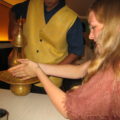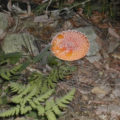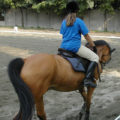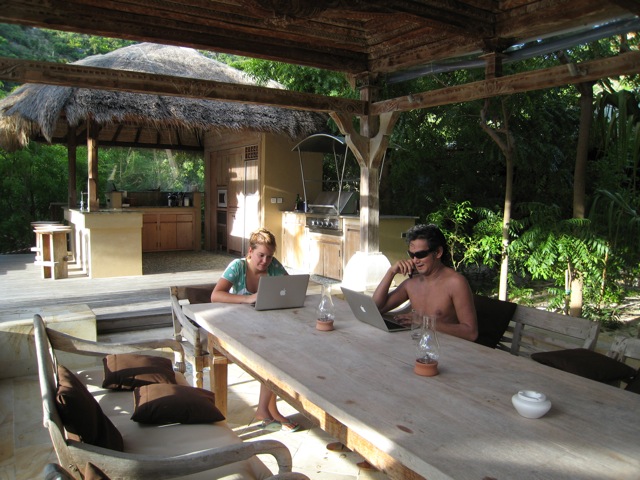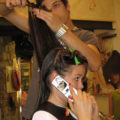At five months, human babies love the world and trust everybody in it. When I took her in for a routine pediatric checkup, my daughter Rossella smiled and gurgled and laughed, assuming that everyone in the world loved her, and nothing and no one would hurt her.
The checkup required that a little blood be drawn, from a finger prick. As I held Ross in my lap, she smiled cheerily at the nurse approaching with a trayful of blood-drawing equipment. “I feel so guilty,” sighed the nurse. “They’re always so trusting at this age.” Ross looked on interestedly as the nurse unwrapped a lancet, grasped her tiny forefinger, then rapidly poked it with that sharp piece of metal.
There was a moment of stunned silence. Ross’ face turned red and her eyes bulged with shock while the nurse hurriedly squeezed a drop of blood into a tube. Then Ross began to scream. These weren’t wails of pain or sorrow: she was giving voice to sheer outrage. She simply couldn’t believe that the world she had greeted with open arms had turned on her so suddenly and shockingly. Trust was shattered, and she had no intention of forgiving anybody anytime soon.
I cuddled her in my arms, telling her uselessly that the nurse hadn’t wanted to hurt her, that it was all for her own good, that everything was fine – and I reflected on the betrayed trust of children.
When I was age eight or so, I had an abcessed tooth. My mother took me to the dentist, who sat me in the big chair, examined me, and then went off in the corner to consult with my mother. Though they kept their voices low, I hear the word “extraction,” and asked worriedly, “You’re not going to do that now, are you?”
“No, of course not,” said the dentist soothingly, approaching me in the chair again. “Now just lie back and let me take a look.” The next thing I knew was searing pain as she wrenched that tooth out, followed by gouts of blood all over my favorite blouse. (I didn’t own much girly clothing, and was very fond of that frilly white blouse and the little red skirt that went with it – both ruined with bloodstains that day.)
My next memory is of being back at our house, standing in the garden, my jaw aching and my mouth full of blood-soaked wads of cotton. I was still in shock. I couldn’t believe that two grown-up women had done that to me, had deliberately lied and then hurt me when they said they weren’t going to.
My next dental experience was in Pittsburgh, where my dad (by then single-parenting me) couldn’t understand why I was so afraid that I would scream and tremble and cry as soon as the dentist got near me. I became so hysterical that he slapped me (the only time I can ever remember my dad hitting me), which naturally didn’t help. Anesthesia seemed the only solution, and that was what we did for years, every time, for every little cavity. I hated the sensation of going under (and the dentist’s repeated lie that the gas would smell sweet), hated waking up nauseous in a cold waiting room, to the sound of a local radio station. Once I awoke to an ad for “Andy Warhol’s Frankenstein” – not exactly soothing. But all of this was better than facing the dentist.
Although I gave up the anesthesia years ago, I still tense up in doctors’ and dentists’ offices – places of concentrated pain, as far as I’m concerned.
Tomorrow I will accompany Ross to have her first wisdom tooth out. She’s not a bit afraid. Though she had to start seeing dentists early in life, I was very, very careful to ensure that nothing was ever done to her without her knowledge and consent, and we were fortunate to find a dentist with staff whose patience and kindness were at least equal to my own. This meant a lot of visits in which nothing at all was accomplished on the dental front, but Ross grew to trust everybody so much that she eventually let them do everything they needed to, even the painful things, without fuss or fear. For a while she even aspired to be a dentist herself!
So she’s not worried about tomorrow. Nor should I be: our dentist here in Lecco is a family friend and absolutely competent. But, still, I can’t help my stomach clenching a little. Some childhood experiences you just never quite get over.






